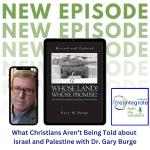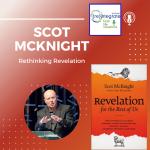Greg Forster
“The integration of private property and public good . . . of personal responsibility and social concern [brings people together]. Our ideologically divided societies are crying out for thoughtful reflection that stops making [us] enemies of each other.” – Charlie Self, author of “Flourishing Churches and Communities”
Economic culture, institutions, and systems cannot make people love their neighbors, but they can make it much easier or much harder to do so. If we design these structures on the assumption that class conflict is a permanent feature of human life, they will cultivate and exacerbate class conflict. If we design them on the assumption that the highest economic good is to satisfy our own desires, they will pit people against one another in a ruthless war to seize resources. But if we design structures on the assumption that people who serve one another create economic growth that benefits everyone, it will encourage people to more readily pursue work that serves others. That, by itself, does not regenerate the human heart, but it is morally formative. It structures economic activity in a way that cultivates and rewards love as both a motivation and a behavior.
Charlie Self, author of “Flourishing Churches and Communities,” made this point during a recent panel discussion. Americans have become too accustomed to separating property rights and personal responsibility from public good and social concern, pitting them against one another. On one side of the ideological divide, all claims advanced in the name of rights and responsibilities can be viewed with suspicion because they are thought to detract from the public and social good. On the other side, all claims made in the name of the public and social good can be viewed with suspicion because they are thought to detract from rights and responsibilities. Only an integration of these concerns can create a stable consensus on the moral commitments that ought to define our culture’s economic structures.
https://www.youtube.com/watch?v=2hmOk6RL-lYSelf also points to the importance of a system of “ethical wealth creation” over systems based on the expectation that there is a fixed amount of wealth in the world. When people think wealth is fixed, they start to view their neighbors as economic rivals. If there is only so much stuff to go around, everyone will inevitably end up trying to grab as much stuff as they can before others grab it. As Self suggests, this perspective is the deepest source of economic policies that prioritize the redistribution of wealth. Such approaches permanently pit the rich and the poor against one another, forcing them into political conflict. Moving our central focus to ethical wealth creation will not solve all of our problems or create a utopia, and some public aid programs will always be necessary. But ethical wealth creation is the only social context that makes it possible to bring wealth and flourishing to the poor without dividing society and creating unnecessary conflict.
From the Kern Pastors Network.











